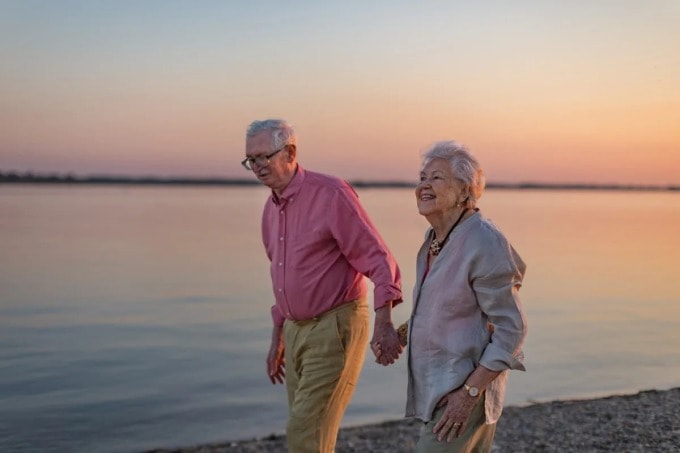Research has shown that the living habits of people in Blue Zones (where many people live long) such as Okinawa (Japan) and Loma Linda (California, USA) have many things in common.

According to Dr. Sehgal, Director of the Center for Healthy Longevity, Yale University (USA), centenarians often have a balanced diet, rich in whole, unprocessed foods such as fruits, vegetables, whole grains and lean proteins, also known as the Mediterranean diet.
He also said that they consume moderate portions and focus on plant-based foods, which are rich in nutrients that support overall health. This group of people often eat unprocessed foods such as fruits, vegetables, beans and whole grains, whatever is fresh and locally available. They do not diet, mostly eating balanced meals in moderate amounts. In addition, they supplement with fermented foods such as yogurt, kombucha, and pickles because fermented foods are a great natural probiotic and are great for digestion and immunity. This group of people rarely smoke and limit their alcohol consumption.
Additionally, Dr. Sehgal says that people who live long have strong social ties with family, friends, and community. These connections provide emotional support, reduce stress, and create a sense of belonging and purpose. Having a strong social network helps lessen the impact of life’s challenges and contributes to mental and emotional health. Regular social interactions also keep the mind active and occupied, which is important for cognitive health as people age.
The third point mentioned is sleep. For Dr. Paulvin, a doctor of regenerative medicine and longevity (USA), sleep is one of the top characteristics of centenarians. He asserts that maintaining a sleep schedule of at least 7 hours a day and maintaining circadian rhythms helps improve cognition and brain health, while also helping to reduce inflammation and increase energy.
Dr Paulvin said regular physical activity was the fourth trait many long-lived people shared. “Regular exercise will help maintain cardiovascular health and flexibility, ensuring the ability to move freely without pain and can also help prevent injuries,” he said. This could include activities such as swimming, jogging, walking or yoga, which have been shown to improve quality of life, longevity and even reduce the risk of cardiovascular disease, diabetes and some cancers, he said.
Genetics play a big role in longevity, but it's not as important as focusing on physical and mental health. "Longevity is not a sprint, it's a marathon. It's not about following strict rules, it's about adopting a balanced, natural, sustainable lifestyle over the long term," says Dr. Paulvin.
TB (according to VnExpress)